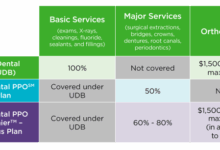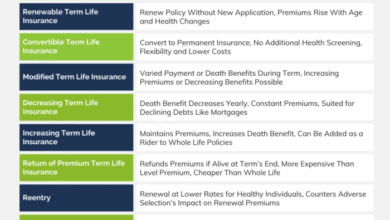Top Insurance Companies With The Best Customer Service
Exploring the realm of Top Insurance Companies with the Best Customer Service reveals the crucial role customer service plays in shaping client experiences and trust. In an industry where claims and support can often be daunting, exceptional customer service stands out as a beacon of reliability and satisfaction.
This discussion not only highlights the companies recognized for their stellar service but also delves into the essential metrics that define customer satisfaction. By examining the strategies of leading insurers and the impact of customer feedback, we uncover what makes a company truly exceptional in the eyes of its clients.
Overview of Customer Service in Insurance
The insurance industry is characterized by a complex web of products, regulations, and customer expectations. In this environment, exceptional customer service is not merely an added benefit; it is a fundamental component that directly impacts customer satisfaction, loyalty, and retention. Given that insurance purchases are often significant financial commitments for individuals and businesses, the quality of customer service can profoundly influence their overall experience and perception of the company.To gauge the effectiveness of customer service in the insurance sector, various metrics are employed.
These metrics provide valuable insights into how well companies are meeting customer needs and expectations. Important measures include:
Common Metrics Used to Evaluate Customer Service
Understanding how to measure customer service performance is critical for insurance companies. The following metrics are commonly utilized to assess service quality:
- Net Promoter Score (NPS): This metric assesses customer loyalty by asking how likely customers are to recommend the company to others.
- Customer Satisfaction Score (CSAT): This score reflects customer satisfaction with a specific interaction or overall experience.
- First Call Resolution (FCR): This measures the percentage of inquiries resolved on the first contact, indicating efficiency and effectiveness.
- Average Response Time: The time it takes for customer service representatives to respond to inquiries, crucial for assessing accessibility.
- Customer Effort Score (CES): This score measures how easy it is for customers to interact with the company and resolve issues.
Key factors that contribute to exceptional customer service in insurance include proactive communication, personalized service, and efficient claims processing. These elements not only enhance the customer experience but also foster trust and long-term relationships.
Key Factors Contributing to Exceptional Customer Service
Several key factors elevate customer service within the insurance arena, creating a competitive edge for top companies. These factors include:
- Training and Empowerment: Well-trained staff equipped with product knowledge and decision-making authority can resolve issues quickly and accurately.
- Technology Integration: Leveraging technology such as chatbots, CRM systems, and mobile apps can streamline communication and provide 24/7 support.
- Transparency: Being clear about policies, pricing, and claims processes builds trust and confidence among customers.
- Listening to Feedback: Actively seeking and responding to customer feedback helps companies adapt and improve their services continuously.
- Customer-Centric Culture: Cultivating a company culture that prioritizes customer needs leads to better service outcomes and satisfied clients.
Successful insurance companies recognize that investing in customer service not only enhances client relationships but also drives business growth. By prioritizing exceptional customer service, these companies can thrive in a competitive landscape while meeting the evolving needs of their customers.
Top Insurance Companies with High Customer Satisfaction

Source: sarkariexamhelp.com
When it comes to insurance, customer satisfaction is paramount. A company that prioritizes its clients not only earns their loyalty but also sets itself apart in a competitive market. In this segment, we’ll explore the top insurance companies renowned for their exceptional customer service and high customer satisfaction ratings.Customer satisfaction in the insurance industry often hinges on various factors, including claims handling, response times, and the overall customer experience.
The following list highlights companies that consistently rank high in customer satisfaction surveys and reports.
Leading Insurance Companies with High Customer Ratings
Several insurance companies have established themselves as leaders in customer satisfaction. Below are some of the top-rated companies along with their latest customer satisfaction ratings.
- USAA
-Known for serving military families, USAA consistently receives high marks for its customer service, achieving a customer satisfaction rating of 93% in recent surveys. - Amica Mutual
-Amica is praised for its personalized service and efficient claims handling, boasting a customer satisfaction rating of 90%. - State Farm
-This major insurer has a customer satisfaction rating of 87%, excelling in response time and ease of claims processing. - Geico
-With a satisfaction rating of 86%, Geico is known for its online services and quick claims, making it a favorite among customers. - Erie Insurance
-Erie offers exceptional customer service and has a satisfaction rating of 85%, particularly noted for its claims support.
To provide a clearer picture of the customer service features offered by these companies, here’s a comparison of some key aspects they provide:
| Insurance Company | Claims Processing Time | 24/7 Customer Support | Online Services | Mobile App Features |
|---|---|---|---|---|
| USAA | Fast (within 24 hours) | Yes | Comprehensive | Claims tracking, policy management |
| Amica Mutual | Prompt (within 48 hours) | Yes | User-friendly | Policy updates, claims reporting |
| State Farm | Efficient (1-2 days) | Yes | Extensive | Virtual assistant, claims tracking |
| Geico | Quick (within 24 hours) | Yes | Excellent | Policy management, roadside assistance |
| Erie Insurance | Reliable (1-3 days) | Yes | Robust | Claims updates, policy management |
Customer satisfaction in insurance is not just about providing coverage; it’s about creating trust and fostering long-term relationships with clients.
Customer Service Strategies Used by Leading Insurers
In the competitive landscape of the insurance industry, top insurers adopt a variety of effective customer service strategies to enhance customer satisfaction and loyalty. These strategies not only define a company’s reputation but also significantly influence client retention and acquisition. By focusing on customer needs and utilizing innovative tools, insurers aim to create seamless and positive experiences for their clients.One of the core strategies employed by leading insurers is the integration of advanced technology into their customer service processes.
This shift towards digital solutions has transformed the way clients interact with insurance companies and access services.
Technology Enhancements in Customer Service
The incorporation of technology in customer service allows insurers to respond to customer inquiries rapidly and efficiently, significantly improving overall satisfaction. Key technological advancements that enhance customer experience include:
- Chatbots and AI Assistants: These tools provide instant responses to client inquiries, helping customers navigate through policies or claims 24/7. For example, companies like Lemonade Insurance use AI to expedite claims processing, resulting in quicker settlements.
- Mobile Applications: Many insurers have developed user-friendly mobile apps that allow customers to manage their policies, file claims, and access support easily. For instance, Geico’s mobile app offers quick access to policy management features, making it convenient for users to stay informed.
- Data Analytics: By leveraging data analytics, insurers can personalize customer interactions and anticipate client needs. This strategy not only enhances service quality but also fosters long-term relationships. For example, Progressive uses data to tailor insurance offerings to individual customer profiles, making their services more relevant.
Employee Training Programs for Customer Service Enhancement
Investing in employee training programs is crucial for insurers aiming to develop exceptional customer service skills among their staff. These programs focus on equipping employees with the knowledge and skills necessary to address customer needs effectively.
- Comprehensive Onboarding: Leading insurers provide thorough onboarding processes that cover not just product knowledge but also customer interaction best practices. This ensures new employees understand the company’s customer service philosophy from day one.
- Continuous Learning Opportunities: Regular workshops and training sessions help employees stay updated on product changes and emerging service trends. This approach is employed by companies like State Farm, ensuring their agents are well-prepared to assist customers.
- Role-Playing Scenarios: Many insurers utilize role-playing exercises to simulate customer interactions, allowing employees to practice responses in real-world situations. This hands-on approach helps build confidence and improves problem-solving skills, directly benefiting customer interactions.
“Effective customer service is a continuous journey that involves adapting to the changing needs of clients and leveraging technology to enhance their experience.”
With these strategies, leading insurers not only foster loyalty among their clients but also set a standard for customer service excellence in the industry. By prioritizing both technological advancements and employee training, they create a customer-centric culture that resonates well with modern consumers.
Customer Feedback and Its Impact on Service Improvement

Source: beginfromhere.com
Customer feedback plays a crucial role in the insurance industry, shaping the services providers offer and enhancing overall customer satisfaction. Insurers that actively seek and effectively respond to customer input often find themselves at the forefront of industry standards and practices.Customer feedback can take many forms, from surveys and reviews to direct communication via social media and customer service channels.
This feedback not only highlights areas for improvement but also serves as a valuable resource for understanding customer preferences and expectations. For instance, companies like USAA have implemented extensive feedback mechanisms that allow them to refine their services based on customer insights, leading to consistently high satisfaction ratings.
Methods for Gathering Customer Feedback
Collecting customer feedback effectively is essential for insurers looking to improve their services. Various methods can be employed to gather insights, ensuring that feedback is comprehensive and actionable. Here are some common strategies used by leading insurance companies:
- Online Surveys: Insurers often send out online surveys post-interaction, asking customers to rate their experience and provide comments on what could be improved.
- Focus Groups: Organizing focus groups allows companies to dive deeper into customer opinions, gathering qualitative data that can reveal underlying issues or preferences.
- Social Media Monitoring: Companies track comments and interactions on social media platforms, enabling them to gauge customer sentiment and react in real-time.
- Customer Interviews: Conducting one-on-one interviews with customers can provide detailed insights into their experiences and expectations.
- Net Promoter Score (NPS): This widely used metric helps assess customer loyalty by asking how likely customers are to recommend the insurer to others.
Insurers recognize the importance of these methods in not only gathering data but also fostering a continuous improvement culture within their organizations.
Responsive Strategies to Enhance Service Quality
Responding to customer feedback is just as critical as gathering it. Insurance companies that actively implement changes based on customer insights often see significant improvements in service quality. Examples of responsive strategies include:
- Service Adjustments: Insurers may revise policies, adjust coverage options, or enhance product offerings in response to specific feedback trends.
- Training Programs: Companies often invest in staff training based on feedback regarding customer service interactions to ensure better service delivery.
- Proactive Communication: Insurers that communicate changes made in response to feedback can build trust and demonstrate their commitment to customer satisfaction.
- Enhanced Digital Platforms: Continuous improvements to websites and mobile apps based on user experience feedback ensure smoother interactions for customers.
- Tailored Solutions: By analyzing customer feedback, insurers can create personalized offerings that better meet individual client needs.
These strategies underscore the importance of not just hearing customer voices but also taking actionable steps that lead to tangible improvements in service quality and customer satisfaction.
Case Studies of Insurance Companies Excelling in Customer Service
In the highly competitive insurance landscape, providing exceptional customer service is more than just a value proposition; it’s a necessity. This section examines notable case studies of insurance companies that have successfully distinguished themselves through outstanding customer service practices. The following case studies illustrate how these companies faced various challenges and the innovative solutions they implemented to enhance customer satisfaction and loyalty, leading to tangible improvements in their operational outcomes.
Allstate’s Customer-Centric Claims Process
Allstate has consistently ranked high in customer service due to its commitment to a seamless claims process. The company faced significant challenges with customer frustrations regarding lengthy claim settlements. In response, Allstate invested in technology to streamline their claims process, integrating mobile apps and online platforms that allowed customers to report and track their claims in real time. Through these enhancements, Allstate achieved notable outcomes:
- Reduced Claims Processing Time: The average time to process claims decreased by 30%, significantly improving customer satisfaction.
- Increased Customer Engagement: The app saw a 40% increase in usage, leading to greater customer interaction and trust.
- Positive Feedback Loop: Customer satisfaction scores rose by 25%, indicating that customers valued the enhanced transparency and efficiency of the claims process.
USAA’s Personalized Customer Support
USAA, serving military members and their families, has earned a stellar reputation for customer service. The challenge they faced was meeting the unique needs of a diverse clientele, often in high-stress situations. USAA tackled this by implementing a personalized customer support model, utilizing data analytics to better understand customer profiles and preferences.The following outcomes were achieved through this approach:
- Customized Solutions: Tailored insurance products led to a 15% increase in policy renewals, as customers felt their individual needs were being met.
- Higher Customer Retention Rates: USAA reported an exceptional retention rate of over 90%, showcasing the effectiveness of their personalized service.
- Increased Net Promoter Score (NPS): Their NPS surged to 86, reflecting the strong advocacy from satisfied customers.
Geico’s Innovative Self-Service Options
Geico has transformed its customer service approach by focusing on self-service options. Initially, the company faced criticism for long wait times and limited customer interaction. To address this, Geico developed a robust online platform and mobile app, enabling customers to perform tasks like policy management, claims submissions, and payments independently.Key outcomes of this strategy include:
- Reduced Call Volume: Self-service options decreased call center traffic by 35%, allowing representatives to focus on complex inquiries.
- Enhanced Customer Satisfaction: Surveys indicated a 20% increase in customer satisfaction due to the convenience of self-service features.
- Cost Efficiency: The company reduced operational costs by approximately 15% as a result of the shift to digital platforms.
State Farm’s Community Engagement Initiatives
State Farm has taken a unique approach to customer service by engaging with local communities. The challenge was to build genuine connections with policyholders, especially in times of crisis. By launching community outreach programs and disaster preparedness workshops, State Farm aimed to enhance its service reputation and foster trust.The results from these initiatives are noteworthy:
- Stronger Community Relationships: The company reported a 50% increase in positive community feedback, leading to improved brand loyalty.
- Proactive Customer Engagement: Customers appreciated the proactive approach, resulting in a 30% increase in customer referrals.
- Recognition and Awards: State Farm received several industry awards for its community service efforts, further cementing its status as a service leader.
The Role of Customer Service in Retention and Loyalty
In the highly competitive insurance industry, exceptional customer service serves as a cornerstone for client retention and loyalty. Insurers that prioritize creating positive experiences for their customers are more likely to foster lasting relationships that significantly contribute to their overall success. With the average cost of acquiring a new customer being five to 25 times higher than that of retaining an existing one, investing in customer service is not just a strategy; it’s a necessity for sustainable growth.The connection between customer service and client retention in insurance is evident.
When clients feel valued and understood through effective communication and support, they are more likely to renew their policies and recommend the insurer to others. High levels of customer satisfaction lead to stronger loyalty, ultimately resulting in reduced churn rates. The insurance landscape has shown that clients who have positive experiences with their service representatives are significantly more likely to remain with their insurer over the long term.
Strategies That Foster Customer Loyalty Through Service Excellence
Implementing effective strategies for enhancing customer service is critical for promoting customer loyalty. Companies that excel in this area often utilize the following approaches:
Personalized Communication
Tailoring interactions to individual needs and preferences helps clients feel acknowledged. This can be achieved through CRM systems that keep track of customer history and preferences.
Proactive Outreach
Regular follow-ups and check-ins can increase customer satisfaction. This not only demonstrates care but also provides an opportunity to address any potential concerns proactively.
Multi-channel Support
Offering support through various channels such as phone, email, live chat, and social media allows customers to choose their preferred method of communication, enhancing their overall experience.
Training and Development
Continuous training for customer service representatives ensures they are well-equipped to handle inquiries and solve problems efficiently. Knowledgeable staff can build trust and confidence with clients.
Feedback Mechanisms
Establishing systems for gathering and analyzing customer feedback can help insurers identify areas for improvement and adapt their services accordingly. This demonstrates a commitment to enhancing the customer experience.The financial impact of customer service on an insurance company’s bottom line cannot be overstated. Companies that invest in high-quality customer service often see a direct correlation between customer satisfaction and profitability.
“Happy customers are the best marketing strategy.”
Research indicates that a 5% increase in customer retention can lead to a profit increase of 25% to 95%, underscoring the economic value of effective customer service. Additionally, loyal customers are more likely to purchase additional policies or upgrade their coverage, further boosting revenue. Therefore, the emphasis on cultivating strong customer relationships through exceptional service is not only beneficial for clients but also serves as a powerful driver for an insurance company’s financial success.
Trends in Customer Service within the Insurance Industry

Source: qcsolver.com
The insurance industry has seen significant changes in customer service practices, driven by evolving consumer expectations and emerging technologies. As customers demand more personalized and efficient services, insurers are adapting their strategies to enhance overall satisfaction and loyalty. This section explores current trends shaping customer service in insurance, predictions for the future, and the impact of technological advancements on customer interactions.
Current Trends in Customer Service
Several key trends are currently influencing customer service practices in the insurance sector. These trends reflect a shift towards customer-centric approaches that prioritize engagement, transparency, and efficiency.
- Personalization: Insurers are leveraging data analytics to tailor services based on individual customer preferences. This allows for customized coverage options and proactive communication, enhancing the overall customer experience.
- Omnichannel Support: Customers now expect seamless interactions across various platforms—be it via phone, chat, email, or social media. Insurers are investing in integrated systems that provide consistent service regardless of the communication channel.
- Self-Service Capabilities: Many clients prefer self-service options for managing policies, filing claims, or accessing information. Insurers are implementing user-friendly online portals and mobile apps to facilitate these services efficiently.
Predictions for the Future of Customer Service
Looking ahead, the insurance industry is poised for further transformation in customer service, driven by technological advancements and changing consumer behaviors.
- Increased Automation: The use of AI and chatbots is expected to rise, allowing insurers to handle routine inquiries more efficiently. This will enable human agents to focus on complex cases, improving overall service quality.
- Enhanced Data Security: As digital interactions grow, ensuring the security of customer data will become paramount. Insurers will need to adopt robust cybersecurity measures to build trust and safeguard sensitive information.
- Proactive Customer Engagement: Future customer service will likely shift towards a more proactive approach, with insurers reaching out to customers about potential issues or opportunities before they arise, thereby enhancing satisfaction and loyalty.
Emerging Technologies Impacting Customer Interactions
Technological innovations are fundamentally altering how insurance companies interact with their clients. The integration of advanced technologies is redefining service delivery and customer engagement.
- Artificial Intelligence: AI technologies are being utilized for predictive analytics, allowing insurers to anticipate customer needs and tailor offerings accordingly. This not only improves customer satisfaction but also drives operational efficiency.
- Blockchain Technology: The adoption of blockchain can enhance transparency and security in transactions, fostering greater trust between insurers and their customers. Smart contracts are an example of how blockchain can streamline claims processes.
- Internet of Things (IoT): IoT devices are providing insurers with real-time data, enabling more accurate risk assessments and personalized insurance products. For instance, usage-based insurance models are becoming more prevalent, allowing customers to pay premiums based on actual usage data.
Ending Remarks
In summary, the landscape of insurance is rapidly evolving, driven by the need for outstanding customer service. As we reflect on the companies that excel in this area, it becomes evident that customer-centric strategies not only enhance satisfaction but also foster loyalty and retention. The journey towards superior customer service is an ongoing one, and those who adapt will surely thrive in the competitive insurance market.
Question & Answer Hub
What defines exceptional customer service in insurance?
Exceptional customer service in insurance is defined by quick response times, personalized support, clear communication, and proactive problem-solving.
How can customer feedback improve insurance services?
Customer feedback can improve insurance services by highlighting areas for enhancement, guiding product development, and shaping customer service strategies.
What technology is commonly used to enhance customer service?
Common technologies include chatbots for immediate assistance, CRM systems for personalized interactions, and data analytics to predict customer needs.
How often should insurance companies gather customer feedback?
Insurance companies should gather customer feedback regularly, ideally after key interactions, to continuously improve their services and adapt to client needs.
What is the impact of customer service on an insurance company’s success?
Strong customer service directly impacts an insurance company’s success by improving customer retention, enhancing reputation, and driving new client acquisitions through positive referrals.









